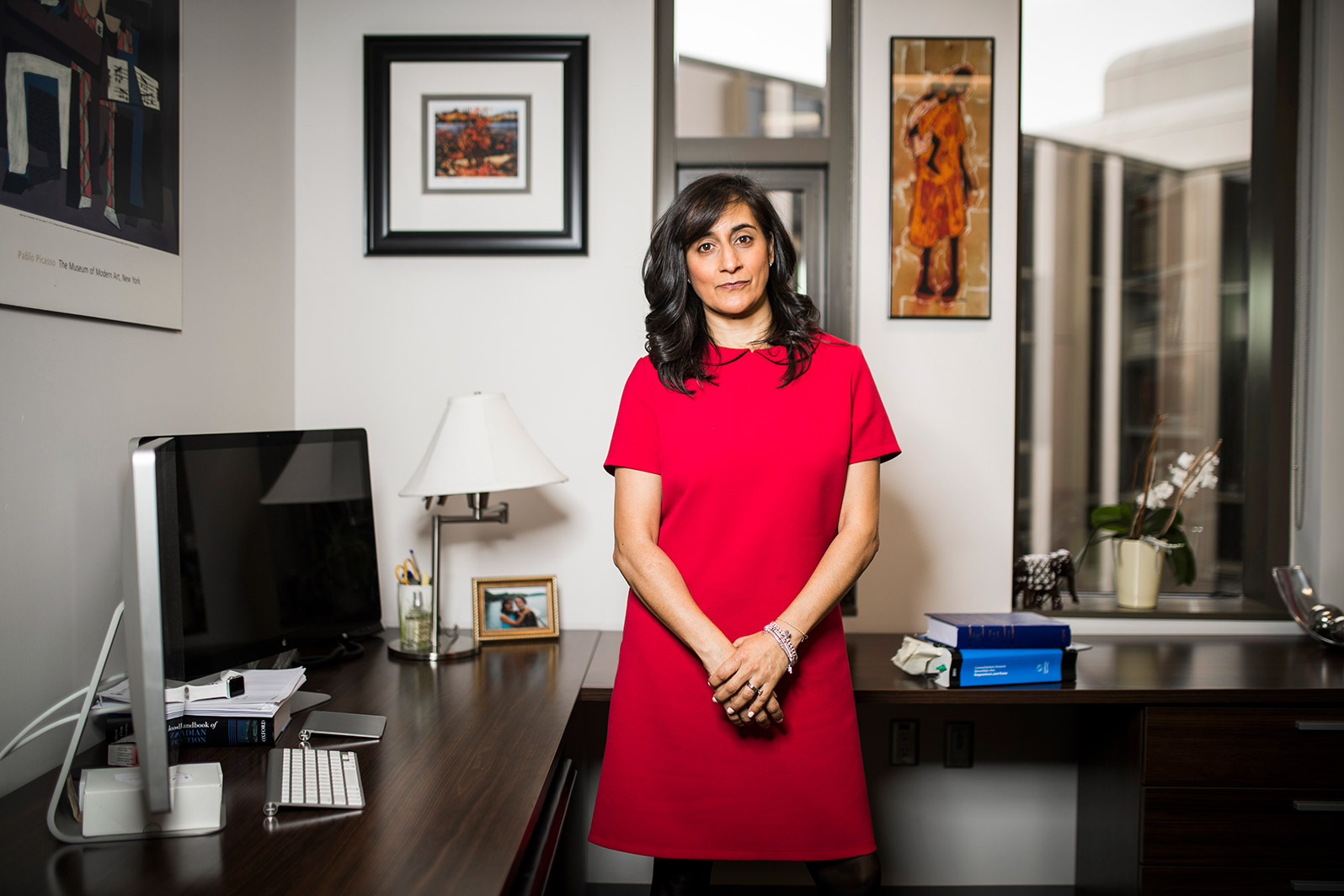Are your investments safe? Not as safe as you might think, says Prof. Anita Anand, who holds the J.R. Kimber Chair in Investor Protection and Corporate Governance at U of T’s Faculty of Law. The chair was created in 2016 through a gift from Chancellor Emeritus Hal Jackman (LLB 1956) to foster research into investors’ rights. Anand is calling for three major changes to boost safeguards for the 50 per cent of Canadians who own stocks:
1—Give investors a legal right to compensation for any money they lose due to fraud or due to breaches of security regulations.
Securities law allows for penalties against companies found guilty of fraud or securities violations, but there is no guarantee those fines will be paid to investors who lose money. Most of the time, investors get nothing back. This is especially bad for low-income or retired individuals, says Anand, because they are most vulnerable to financial ruin and the least able to pursue their own remedies.
2—Regulate the relationship between investment adviser and client more tightly.
Right now, investment advisers and financial planners have no statutory obligation to act in good faith and in the best interests of their clients. They are not required to obtain a license or professional designation, and they may give themselves job titles without telling clients what they mean. As a result, investors may have a false sense of their advisers’ credentials.
3—Apply stricter rules to companies that have more than one class of shareholder.
Some companies have dual-class share structures. With one class, they are able to raise capital from the public and with the other, they can allot themselves extraordinary voting rights so they maintain control of the corporation. Although outside shareholders provide equity to the firm, they do not have any say in governance, including executive compensation. “This is unfair,” says Anand.





